Center for Therapeutics Discovery
Research
Research Overview
The discovery and development of new medicines to treat many of society’s complex and inadequately treated diseases remains a lengthy, high-risk and high-cost endeavor. As such for-profit pharmaceutical companies seek to preferentially invest in advanced programs/targets where significant de-risking and target validation has already taken place or there is strong human genetic data to support the likelihood of a measurable impact to deliver a new treatment option. Cleveland Clinic launched the Center for Therapeutics Discovery to address the risk continuum in drug development and shorten the time between basic discovery to clinical testing. Through this investment we aim to accelerate better treatments and outcomes for our patients.
The Center operates across the enterprise where physicians identify unmet needs of patients, and our scientists in the lab work in collaboration with our clinical colleagues to identify targets and key pathways that may afford new treatment strategies.
Our research requires a multi-disciplinary team focus which includes medicinal chemistry, biochemistry, structural biology, chemical biology, cell biology, pharmacology, and resources and expertise in toxicology and drug metabolism. Through bringing together highly skilled teams of scientists, prudent application of resources and go/no-go milestones, we interrogate both the chemical and biological space of a given preclinical hypothesis utilizing state of the art technologies to understand target engagement as well as off-target pharmacology. These efforts afford high quality tool compounds and clinical candidates.
De-risked projects and molecules are brought to a position where clinical testing is pursued further through licensing, sponsored research, bridge partners, or start-up mechanisms. Our growing project portfolio consists of exciting, high-quality projects from a wide range of therapeutic impact areas, focusing on innovative treatments for patients that are driven by integration and collaboration with Cleveland Clinic's world leading institutes.

Facilities
The Center for Therapeutics Discovery is making advancements within a newly-renovated space that includes state-of-the-art nuclear magnetic resonance equipment and an advanced storage system for chemical libraries, vital for generating new compounds in this therapeutic program.

Medicinal Chemistry
The Cleveland Clinic's Center for Therapeutics Medicinal Chemistry Core utilizes state-of-the art technology in small molecule synthesis and purification towards the production of chemical probes, tool compounds, and preclinical candidates. Capabilities and services include reaction optimization, automated purification (silica gel, reverse-phase, SFC), and full characterization of final compounds (purity and identity including LCMS high-res accurate mass, 1H, and 13C NMR). The Medicinal Chemistry team operates with several models at C3TD including collaborative and contract-based projects both internal and external.
Equipment/Instrumentation
Synthesis equipment:
- ThalesNano H-Cube Mini Plus
- Biotage Initiate+8 Microwave
- 2 HepatoChem PhotoRedOx Photochemistry Kit
- Inert single module Glove Box
Purification equipment:
- 5 ISCO CombiFlash NextGen300
- 1 UV-directed preparative RP-HPLC GX-271 Gilson system
- 1 Biotage ACQU Prep reverse phase purification system
- 1 Labconco large scale lyophilizer evaporator
- Multiple Edwards high-vac pumps and Argon blow-down stations
- Analytical / Preparative Supercritical Fluid PIC Chromatography System
Other Key Instruments:
- NMR Facility Bruker DRX-600 (SampleJet 96-position Autosampler) and DRX-400
- Agilent Analytical LC-HRMS TOF mass spectrometer
Screening & Target Validation
The Screening and Target Validation Core brings together disciplines in cell biology, pharmacology, biochemistry, and structural biology coupled with state-of-the-art liquid handling and sample management technology for high-density phenotypic and biochemical-based screening platforms. Capabilities and services include assay development, protein expression, cell-line optimization/cloning, and assay ready 384-well plate generation. The STV team operates with several models including Investigator lead or collaborative based screening campaigns. Multiple types of screening library collections are available in-house including Life Chemicals bioactive and diversity libraries (58K) and Enamine Fragment based library collections (5K).
Equipment/Instrumentation
- Cytation 5
- BioTek Synergy 4
- 2x Multidrop Combi Dispenser
- Echo 550
- Tecan Liquid Handler EVO150
- Hamilton Verso S1 – automated sample storage unit
- 4titude a4s plate sealer
- Leica S9 stereoscope
- Beckman Coulter Vi-cell Blue Cell Analyzer
- 3x BioRad FPLC Quest Purification System and Fraction Collector
- Innova S44i incubator/shaker
Publications
Han, S. H.; Goins, C. M.; Arya, T.; Shin, W. J.; Maw, J.; Hooper, A.; Sonawane, D. P.; Porter, M. R.; Bannister, B. E.; Crouch, R. D.; Lindsey. A. A.; Lakatos, G.; Martinez, S. R.; Alvarado, J.; Akers, W. S.; Wang, N.S.; Jung, J. U.; Macdonald, J. D.; Stauffer, S. R. Structure-Based Optimization of ML300-Derived, Noncovalent Inhibitors Targeting the Severe Acute Respiratory Syndrome Coronavirus 3CL Protease (SARS-CoV-2 3CL pro). J. Med. Chem. 2021, 64, 2880-2904.
Link: https://pubmed.ncbi.nlm.nih.gov/34347470/
Wang, X.; Shirke, A.; Walker, E.; Sun, R.; Ramamurthy, G.; Wang, J.; Shan, L.; Mangadlao, J.; Dong, Z.; Li, J.; Wang, Z.; Schluchter, M.; Luo, D.; Wang, Y.; Stauffer, S.; Brady-Kalnay, S.; Hoimes, C.; Lee, Z.; Basilion J.P. Small Molecule-Based Prodrug Targeting Prostate Specific Membrane Antigen for the Treatment of Prostate Cancer. Cancers, 2021, 3, 417, PMID: 33499427.
Link: https://pubmed.ncbi.nlm.nih.gov/33499427/
Li, J.; Berk, M.; Alyamani, M.; Sabharwal, N.; Goins, C.; Alvarado, J.; Baratchian, M.; Zhu, Z.; Stauffer, S.; Klein, E. A.; Sharifi, N. Hexose-6-phosphate dehydrogenase blockade reverses prostate cancer drug resistance in xenograft models by glucocorticoid inactivation. Science Transl Med., 2021, 13, 595, PMID: 34039740.
Link: https://pubmed.ncbi.nlm.nih.gov/34039740/
Fang, J.; Zhang, P.; Zhou, Y.; Chiang, C.-W.; Tan, J.; Hou, Y.; Stauffer, S.; Li, L.; Pieper, A. A.; Cummings, J.; Chen, F. Endophenotype-based in silico network medicine discovery combined with insurance record data mining identifies sildenafil as a candidate drug for Alzheimer’s disease. Nature Aging, 2021, 1, 1175–1188.
Link: https://pubmed.ncbi.nlm.nih.gov/35572351/
Mitchell, K.; Shakya, S.; Silver, D. J.; Goins, C. M.; Wallace, L.; Roversi, G.; Schafer, R.; Kay, K.; Miller, T. E.; Lauko, A.; Kass, J. D.; Kashyap, A.; Mulkearns-Hubert, E. E.; Johnson, S.; Alvarado, J.; Rich, J. N.; Stauffer, S. R.; Hubert, C. G.; Lathia, J. D. The WRAD complex represents a therapeutically exploitable target for cancer stem cells in glioblastoma. bioRxiv, 2022 accepted.
Smalling, R. V.; Bechard, M. E.; Duryea, J.; Kingsley, P. J.; Roberts, E. R.; Marnett, L. J.; Bilbao, D. Stauffer, S. R.; McDonald, O. G. Aminopyridine analogs selectively target metastatic pancreatic cancer. Oncogene, 2022, PMID: 35031771.
Link: https://pubmed.ncbi.nlm.nih.gov/35031771/
Weber, G. E.; Khrestian, M.; Tuason, E. D.; Shao, Y.; Pillai, J.; Rao, S.; Feng, H.; Zhou, Y.; Cheng, F.; DeSilva, T. M.; Stauffer, S. R.; Leverenz, J. B.; Bekris, L. M. Peripheral sTREM2-Related Inflammatory Activity Alterations in Early-Stage Alzheimer’s Disease. J. Immunol. 2022, 208, 2283-2299.
Link: https://pubmed.ncbi.nlm.nih.gov/35523454/
Morrell, C. N.; Mix, D.; Aggarwal, A.; Bhandari, R.; Godwin, M.; Owens III, P.; Lyden, S. P.; Doyle, A.; Krauel, K.; Rondina, M. T.; Mohan, A.; Lowenstein, C. J.; Shim, S.; Stauffer, S. R.; Josyula, V. P.; Ture, S. K.; Yule, D. I.; Wagner III, L. E.; Ashton, J. M.; Elbadawi, A.; Cameron, S. J. Platelet olfactory receptor activation limits platelet reactivity and growth of aortic aneurysms. J. Clin. Invest. 2022, 132, e152373.
Members
Members of the Center for Therapeutics Discovery work in the following teams:
- Medicinal Chemistry
- Screening and Target Validation
- Administrative and Sample Management
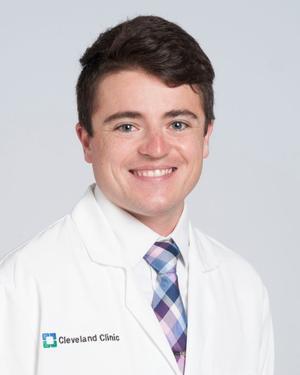
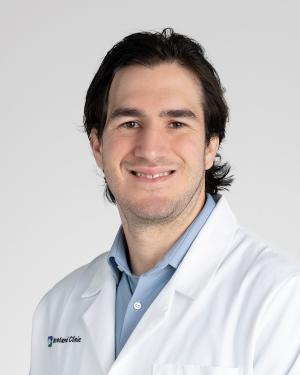
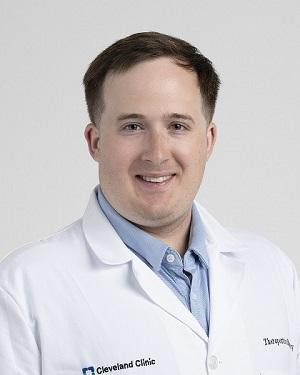
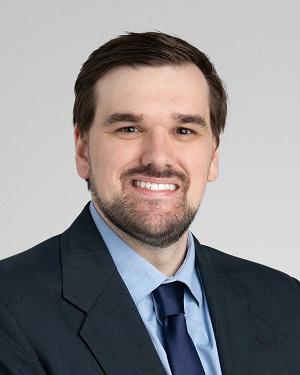
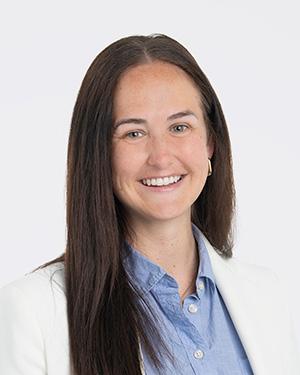
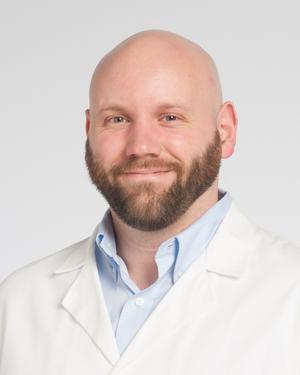



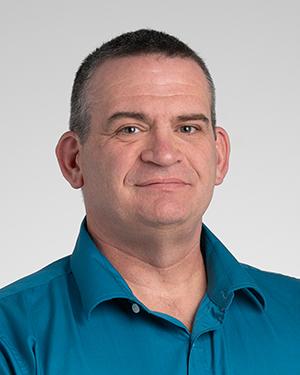


Shaun Stauffer, PhD
Staff
Center Director
Director of Medicinal Chemistry
[email protected]
Lab Profile
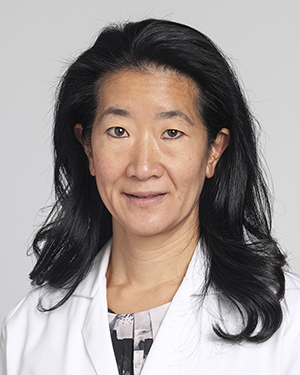
Nancy Wang, PhD
Assistant Staff
Group Leader
Pharmacology
Co-Director
Screening & Target Validation
[email protected]
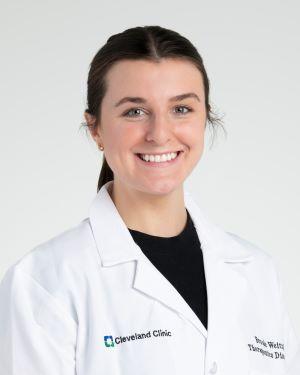
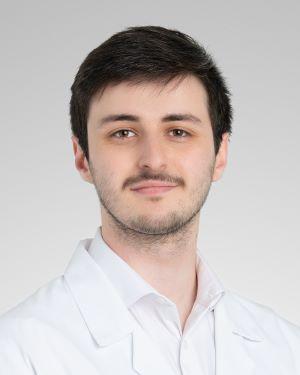
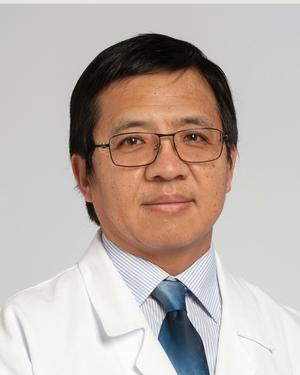
Bin Zhao, PhD
Project Staff
Senior Principle Scientist
Group Leader
Structural Biology and Fragment Technology
[email protected]
External Scientific Advisory Committee (ESAC)
Current Members
Andy Merritt, PhD
Head of Chemistry
LifeArc
Dr. Andy Merritt has held the post of Head of Chemistry at the LifeArc (formerly MRC Technology) Centre for Therapeutics Discovery (CTD) since the summer of 2009. In close collaboration with academic scientists, the CTD develops and subsequently prosecutes innovative drug discovery programs emerging from academic research. During this time small molecule assets in oncology and neuroscience have been partnered with pharmaceutical companies for ongoing clinical development. In addition, tool compounds, supporting research in both these areas and in diseases of the developing world, have been optimized, published and shared across the global research community at no cost. LifeArc also supports academic research group access to compound screening collections covering a range of target classes and technologies.
Prior to his current position Andy was a Director of Discovery Medicinal Chemistry at GlaxoSmithKline, covering early lead discovery from screening campaigns, global responsibility for outsource support for lead discovery chemistry and the supply of tool compounds for target validation. Between 1995 and 2001 as part of the GlaxoWellcome organization he led interdisciplinary teams focusing on lead discovery and optimization incorporating the development of new chemical technologies. Andy joined the former Glaxo organization as a senior medicinal chemist in 1988 following postdoctoral studies in the US, and initially worked on oncology and pain drug discovery programs, leading to one clinical candidate submission.
Andy sat on the RSC Chemistry World editorial board between 2003 and 2019, has been a regular undergraduate lecturer in pharmaceutical medicine at Imperial College, Warwick and Sussex universities, and was the industrial organizer for the RSC Medicinal Chemistry residential summer school between 1999 and 2005.
Scott Daniels, PhD
Senior Vice President
Drug Discovery and Development
Inotiv
Adjunct Associate Professor
Department of Pharmacology
Vanderbilt University
Adjunct Professor
College of Pharmacy
Limpscomb University
Dr. Daniels has advanced the fields of biotransformation and drug metabolism at DuPont Pharmaceuticals, Millennium, Pfizer, and Precera Bioscience, publishing in areas of drug metabolism, chemical toxicology, and pharmacology. Prior to joining Inotiv, Daniels was chief scientific officer at Precera Bioscience and director of drug metabolism and pharmacokinetics at the Center for Neuroscience Drug Discovery at Vanderbilt School of Medicine, where he is currently an adjunct professor of pharmacology.
Scott has extensive experience in discovery and development DMPK (Ph1-Ph3, Ph4 evaluation) with research interests in drug metabolism, specifically in novel biotransformations that deactivate pharmacophores and mediate drug-induced organ toxicity. He has published in areas of DNA adduct formation, drug metabolism and disposition, novel biotransformations and metabolism-mediated toxicity through novel pharmacological mechanisms. His team's activities include DMPK experimental prowess ranged from in vitro and in vivo pharmacokinetics and efflux of small molecule drug candidates to investigating the role of metabolism in mediating bioactivation and drug-mediated toxicity. He has successfully mentored undergraduates, as well as Ph.D. students and a Masters level student in metabolism and disposition science. He assembled and mentored industrial scientific teams towards the discovery and preclinical development of small and large molecule drug candidates and clinical diagnostics/decision support tools.
He received his undergraduate degree in biology and chemistry from Southwest Baptist University and his doctorate in chemistry from the University of Missouri-Columbia and performed his post-doctoral research in chemical toxicology at Vanderbilt University Medical Center.
Melissa Egbertson, PhD
Consultant and Adjunct Professor
Drexel School of Medicine
Melissa Egbertson received her Ph.D. in Organic Chemistry from Yale University under the direction of Sam Danishefsky. Her 25-year career in Medicinal Chemistry at the Merck West Point site included a variety of therapeutic areas, including Cardiology, Infectious Diseases, and Neuroscience. She is one of four inventors of the drug Aggrastat (tirofiban), a fibrinogen receptor antagonist currently used worldwide in the treatment of acute coronary syndrome, and was a key contributor in the team that created Isentress (raltegravir), the first-in-class HIV-integrase inhibitor. Her publication record includes 52 publications and 44 US granted-patents. As a Director in Exploratory Chemistry, she led several teams that prepared neuroscience projects through target validation and lead identification, producing high value series that were graduated on to lead optimization. Currently retired from Merck, she works as an independent chemistry consultant focusing on early stage discoveries. She is a consultant to Trevena Inc., Fox Chase Chemical Diversity Center, and various exploratory programs at Rockefeller University (including a three-year effort in collaboration with Assistant Professor Manish Ponda and a current effort with Prof. Thomas Tuschl). She is also an adjunct professor in the Drexel School of Medicine Pharmacology Department, where she contributes to the Pharmacology Department's Drug Discovery and Development course with a Medicinal Chemistry class.
Peter Ho, MD, PhD
Adjunct Associate Professor
University of North Carolina
Dr. Ho is currently an Adjunct Associate Professor in the Division of Chemical Biology and Medicinal Chemistry at the Eshelman School of Pharmacy, University of North Carolina. He serves on the Scientific Advisory Boards of Accent Therapeutics and Overland Pharmaceuticals, in the Maryland Responds Medical Reserve Corps and previously on the Pediatric Cancer Working Group of the Cancer Moonshot Task Force. Over his career, he has been directly responsible for the first-time-in-human dosing of 18 anticancer agents and has overseen the development of over 60 hematology and oncology compounds in all phases of clinical trials. His work has contributed to eleven NCE or biologics approvals to date: Gleevec®; Arranon®; Tykerb®; Promacta®; Votrient®; Synribo®; Tafinlar®; Mekinist®; Sylvant®; and Rydap®, and Tazverik®.
He received his B.A. in biology from The Johns Hopkins University and his M.D. and Ph.D. (pharmacology) degrees from Yale University, then completed a pediatrics residency at The Children's Hospital of Boston followed by clinical fellowships in pediatric hematology/oncology at the Dana-Farber Cancer Institute and in clinical oncology and regulatory sciences jointly through the U.S. FDA and the NCI. He began his career in drug discovery and development at the Investigational Drug Branch of the Cancer Therapy Evaluation Program, NCI followed by positions of increasing responsibility at Novartis and DuPont Pharmaceuticals. He subsequently served as Senior VP of the Oncology Center of Excellence in Drug Discovery at GlaxoSmithKline and VP of Oncology Clinical Development at Johnson and Johnson.
He moved from large pharma to biotech in 2010 as co-Founder and President of BeiGene Ltd. based in Beijing, China. Most recently, he served as Chief Medical Officer at Epizyme Inc. and then at Boston Pharmaceuticals both of which are based in Cambridge, MA. In these latter roles, he was responsible for and oversaw clinical development functional areas including: medical; clinical operations; clinical pharmacology; regulatory affairs; translational medicine; biostatistics; and data management. He also reviewed and approved in-licensing acquisition.
Nick Meanwell, PhD
Vice President
Drug Discovery Platforms
Bristol Myers Squibb Research and Early Development
Dr. Nick Meanwell is currently the Vice President of Discovery Chemistry Platforms at Bristol Myers Squibb Research and Early Development in Princeton, New Jersey. He has authored more than 270 publications, review articles, book chapters and editorials. He is named as inventor/co-inventor of 141 issued U.S. Patents. Have presented more than 175 invited lectures at national and international meetings, universities and schools on medicinal chemistry.
An inductee in the ACS Division of Medicinal Chemistry Hall of Fame and co-recipient of a 2017 ACS "Heroes of Chemistry" Award, Dr. Meanwell has led drug discovery programs in the cardiovascular, neurosciences and virology therapeutic areas. His work has resulted in the advancement of 33 clinical candidates for the prevention of thrombosis, the treatment of stroke and therapy for viral infections, including human immunodeficiency virus-1 (HIV-1), hepatitis C virus (HCV) and respiratory syncytial virus (RSV).
In the cardiovascular area, Dr. Meanwell's significant discoveries include a series of imidazo[4,5-b]quinolin-2-ones that inhibited cAMP phosphodiesterase 3, with BMY-20844 advanced into clinical trials to assess its potential as an antithrombotic agent; and a series of non-prostanoid prostacyclin mimetics that were optimized into potent blood platelet aggregation inhibitors, as exemplified by BMY-42393 and BMY-45778. In the neurosciences arena, flindokalner (MaxiPost®) emerged from studies of maxi-K potassium channel openers and this compound was advanced into Phase 3 clinical trials for the treatment of stroke.
Significant discoveries to emerge from the antiviral group include RSV fusion inhibitors and a series of HIV-1 attachment inhibitors that are the first small molecules described to function by interfering with the interaction between the virus gp120 protein and the host cell CD4 receptor. From this work, fostemsavir, a phosphonooxymethyl prodrug of temsavir, was approved by the FDA on July 2nd, 2020, and is marketed as RukobiaTM for highly treatment-experienced patients. In addition, an inhibitor of HIV-1 maturation, BMS-955176, completed Phase 2b clinical trials while GSK-3640254 is currently in Phase 2 clinical trials with ViiV Healthcare. Significant compounds in the HCV arena include daclatasvir (DaklinzaTM) and the HCV NS3 protease inhibitor asunaprevir (SunvepraTM). These drugs, which were marketed as a combination therapy for the treatment of GT-1b infection, established for the first time that an HCV infection could be cured by direct-acting antiviral agents in the absence of immune stimulation. DaklinzaTM and SunvepraTM were marketed in Japan in 2014 and DaklinzaTM was approved for marketing by the EMA in 2014 and by the FDA in 2015. In addition, beclabuvir, a thumb site inhibitor of HCV NS5B polymerase, was approved in Japan in December 2016 for the treatment of HCV genotype 1 infection as part of a fixed dose combination with daclatasvir and asunaprevir, marketed as XymencyTM.
Georgia McGaughey, PhD
Founder
Trilligant
In 2024, Georgia retired from her role as Vice President of the global Data and Computational Sciences (DCS) group at Vertex Pharmaceuticals and founded a company called Trilligant to focus on board work. At Vertex, the group which she founded, continues to be responsible for leveraging data and advanced analytics with impact from research to FDA approval for small molecules and genetic therapies. Under her leadership, her former team's most recent success was their central role in the approval of CASGEVY®, a gene editing CRISPR therapy for Sickle Cell Disease which was first approved in 2023. Georgia was also a member of the Research Leadership Team which is responsible for the scientific strategy and direction for the entire Vertex drug discovery portfolio. Prior to this role, Georgia spent thirteen years at Merck where she had a variety of roles with increasing responsibility in therapeutic areas such as infectious diseases and neurosciences. In both areas she contributed directly to medicines: MK-4305 (approved in 2014 as Belsomra®, an orexin antagonist), MK-4965 (non-nucleoside reverse transcriptase inhibitor, NNRTI), MK-6186 (NNRTI), MK-6096 (Filorexant, orexin antagonist), MK-8189 (PDE10, currently in phase 2b) and one PET-tracer (MK-8193) used to measure target engagement for PDE10). In her last role at Merck, she spent two years in Asia working with CROs to further integrate computational and protein sciences with drug discovery.
Georgia carried out her PhD studies at the University of Georgia in force field development for small molecules and then applied those learnings to a polarizable force field with application to proteins at Colorado State University under the tutelage of Professor Rappe. Her most cited paper, "pi-stacking: Alive and Well in Proteins", highlights the importance of leveraging this feature in the design of medicines.
Her most significant achievement has been the direct contribution to the marketed drug suvorexant (Belsomra®), which received FDA approval in 2014 for the treatment of sleep disorders. Georgia was also named a co-inventor for VX-152 and VX-440 (penultimate NCEs prior to Trikafta®, a medicine to treat Cystic Fibrosis). Georgia has published > 100 peer reviewed scientific articles and numerous patents and regularly speaks on topics such as AI, drug design and Inclusion, Diversity and Equity in the sciences. For her work on IDE, she was recognized as the Jeff Leiden Impact Award for Inclusion Diversity and Equity at Vertex (2017) and externally as a 2023 Healthcare Businesswomen's Associate Luminary.
Georgia is also a board member at Silent Spring Institute, which is an organization focused on scientific understanding of how environmental factors impact breast cancer. Recently she joined the board of Little Sparrows Technologies and has founded her own company, Trilligant LLC. In her spare time, she runs marathons and plays the piano.